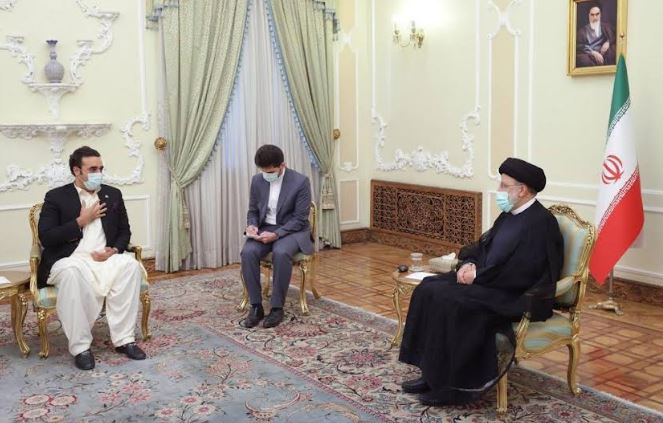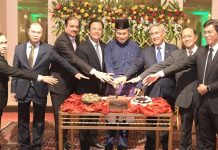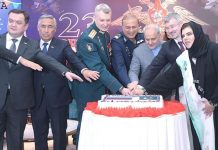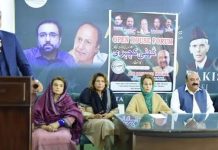By: Zahid Karani
The appointment as Pakistan’s Foreign Minister at the age of 33 is undoubtedly the first unique honor for Bilawal. Bilawal Bhutto Zardari’s style of politics and expression is currently under discussion not only in the country but also in serious circles around the world. Bilawal Bhutto is fortunate to have become famous all over the world even before he became the Foreign Minister due to being the beacon of the Bhutto family. Bilawal Bhutto, on the other hand, took over the Foreign Ministry at an early age with extensive family experience. As soon as he took office, he had to travel to the United States.
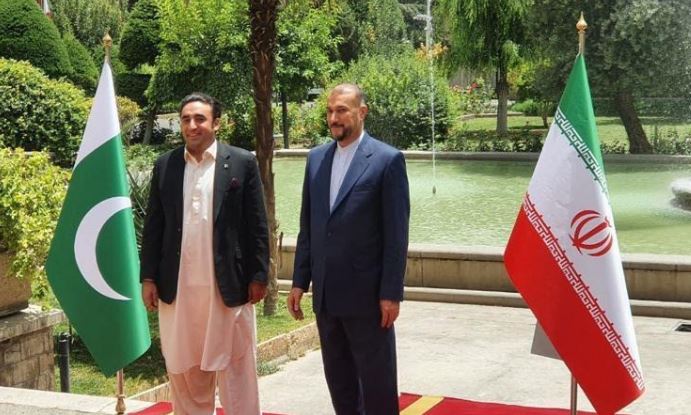
The visit came at a time when relations between Pakistan and the United States were strained, his successful visit was also acknowledged by the American media. During the visit, he explained Pakistan’s position on issues such as the Ukraine war, the Afghanistan conflict, and India’s increasingly aggressive stance in occupied Kashmir. During a press conference in the United States, Bilawal’s defense of Imran’s visit to Russia was surprising. The hallmark of a successful diplomat is that he never brings differences of the national level into the conversation abroad. Bilawal later paid an important visit to China, during his visit, they cut the cake on the 71st anniversary of Pakistan-China diplomatic relations and held important talks on Pak-China relations. Bilawal Bhutto’s third important visit was to Iran. During his visit, he proved to be a true diplomat. During the meeting with Iranian President Sayyid Ebrahim Raees Al-Sadati, when Bilawal Bhutto declared himself not only the son of Pakistan but also the son of Iran, most of the guests were surprised. However, Bilawal Bhutto expressed his family ties and stressed the need for strong Pak-Iran relations. He described himself as the son of Iran about his grandmother Begum Nusrat Bhutto. Begum Nusrat Bhutto, the wife of PPP founder Zulfiqar Ali Bhutto, was born in 1929 in the Iranian province of Isfahan. Her father was a businessman from the Hariri family and her mother was Kurdish. The Iranian family first moved to Mumbai and then to Karachi after the partition of India. His statement made headlines in the Iranian media. That is the beauty of diplomacy. During Zulfiqar Ali Bhutto’s tenure as Prime Minister, Pak-Iran relations were at their peak. Iran has always supported Pakistan on international issues. Similarly, Pakistan has always been vocal in favor of Iran. During a meeting with Iranian President Sayyid Ebrahim Raees al-Sadati, Bilawal Bhutto made it clear that the Pakistani government is looking forward to the successful conclusion of international talks on Iran’s nuclear program, and that expanding bilateral ties, will create a better atmosphere. Bilawal Bhutto Zardari’s visit to Iran may have been of little importance to the Pakistani media but it received good coverage in the Indian media as the Iranian government has always stood by Pakistan’s position on Kashmir, enjoy close, cooperative relationships based on people-to-people historical connections. These fraternal ties are being further strengthened by successive high-level exchanges. The two countries are also celebrating the 75th anniversary of the establishment of diplomatic relations this year. He also referred to the deep ties between the two countries and said that these ties are rooted in centuries-old cordial relations. Raisi said that the people of Iran and Pakistan are not only neighbors but also relatives. He further said that most of the foreign visitors to the shrine of Imam Reza (as) are Pakistanis and this is one of the areas of closeness between the two countries. The President also noted that we consider Pakistan’s security as our security, adding that some people do not like good relations between us two Muslim, neighboring, friendly, and brotherly countries, but the development of relations will lead to economic prosperity and development. There will be more protection for the nations of the region and Iran does not see any restrictions in developing relations with Pakistan, Raisi added that Tehran is ready to promote comprehensive cooperation with Pakistan, as it can meet Pakistan’s needs in various fields, including oil, gas, and electricity. He described energy, transit, and regional issues as important areas of cooperation and stressed that these issues should be resolved through dialogue and cooperation.During the group-level talks, they reviewed all aspects of relations, including trade and economic relations, electricity supply from Iran, border markets, road and rail links, and visitor facilities. They also reviewed the regional security situation, focusing on progress in Afghanistan and South Asia as well as combating Islamophobia. The Foreign Minister reiterated Pakistan’s strong desire to strengthen bilateral ties. Bilawal Bhutto later said in a statement that he was committed to advancing economic and energy cooperation, regional ties, barter trade, and border food markets, highlighting the importance of regular exchanges to facilitate the implementation. The Iranian president stressed that the two countries are committed to “close historical ties and strong fraternal ties. Raisi said, “Iran attaches great importance to its economic and trade relations with Pakistan, which have great potential for further development”. The Foreign Minister also appreciated Iran’s hospitality and facilitation of Pakistani visitors, adding that talks were held on providing more services to the visitors which established a “friendly relationship” between the two countries.According to a report from an international news agency, the political and social circles of the country are also questioning on this occasion whether the Iran-Pakistan pipeline can be activated despite the US sanctions or not. Many quarters of the country believe that Pakistan is facing a severe shortage of gas due to dwindling gas reserves in Sui and other areas while the government has to spend a huge amount of foreign exchange on oil imports. In such a case, if the Pakistan-Iran pipeline project is revived, it will be of great benefit to the economy. Many experts believe that if they import oil and gas from Iran or complete and activate the project, it will greatly benefit Pakistan. This agreement could be beneficial for Pakistan as Iran is one of the largest producers of gas and oil. The advantage of laying the pipeline is that not only do you save on freight costs but it is also cheaper than LNG. It is noteworthy that during the negotiations on a bilateral agreement in the 90s, Iran had asked Pakistan to install sugar and heavy mechanical plants and in return, they would build this pipeline for Pakistan. This proposal was very appropriate, it would have also saved Pakistan’s foreign exchange. At that time Pakistan was not burdened with debt and the industry was improving, but this was not done at that time. Now, after Bilawal Bhutto Zardari visits Iran, there is a possibility of the success of the project, it can certainly improve Pakistan’s deteriorating economic situation, and bilateral relations between the two countries would once again go on the rise. Foreign Minister Bilalwal had returned home after concluding his visit when the echo of a military-level delegation’s visit to Iran began to be heard. There is no doubt that the visit of Pakistan’s Chairman Joint Chiefs of Staff Committee General Nadeem Raza to Iran was pre-arranged. However, a glimpse of Bilawal’s positive and successful visit to Tehran is also reflected in the visit of Chairman Joint Chiefs of Staff General Nadeem Raza. The meetings between General Nadeem Raza and Iranian officials reviewed Iran-Pakistan’s strategic interests and the regional security situation, as well as the promotion of cooperation in the field of security and defense. In the light of Bilawal’s recent visit to Tehran, it can be predicted without a doubt that bilateral relations will become even stronger in the years to come.

